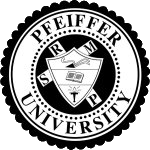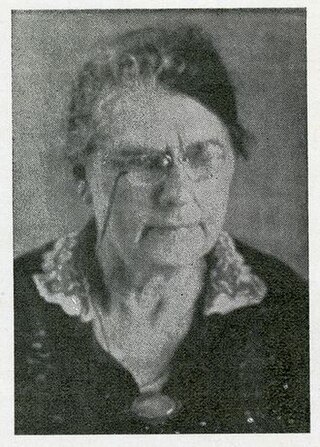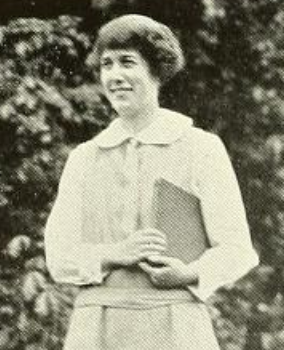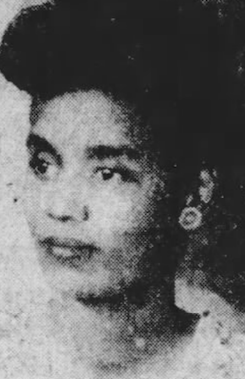Related Research Articles

Berea College is a private liberal arts work college in Berea, Kentucky. Founded in 1855, Berea College was the first college in the Southern United States to be coeducational and racially integrated. It was integrated from as early as 1866 until 1904, and again after 1954.

Pfeiffer University is a private university in Misenheimer, North Carolina. It is affiliated with the United Methodist Church.
Linwood Female College was an American women's college associated with the Associate Reformed Presbyterian Church (ARP). It was located at the foot of Crowders Mountain, near Gastonia, North Carolina. The school was also known as Jones' Seminary in its early years, and as Linwood College in its last years. The school was in operation from 1884 to 1921.
Wilma Dykeman Stokely was an American writer of fiction and nonfiction whose works chronicled the people and land of Appalachia.
John B. Stephenson was a sociologist and scholar of Appalachia, a founder of the Appalachian Studies Conference, and president of Berea College from 1984 to 1994.

Katherine Rebecca Pettit was an American educator and suffragist from Kentucky who contributed to the settlement school movement of the early 20th century.

Willa Beatrice Player was an American educator, college administrator, college president, civil rights activist, and federal appointee. Player was the first African-American woman to become president of a four-year, fully accredited liberal arts college when she took the position at Bennett College in Greensboro, North Carolina.
Eusebia Simpson Hunkins is an American composer and expert on Appalachian music. She is known for her operas and compositions, especially the Smoky Mountain Opera, which include folk stories and music from the Appalachian region of the United States. She was inducted into the Ohio Women's Hall of Fame in 1981.

Helen Dingman was an American academic and social worker who was one of the central figures in the Progressive and New Deal eras to bring social and economic reform to Appalachia. After teaching in Massachusetts for five years from 1912 to 1917, Dingman moved to Kentucky to establish the Smith Community Life School under the auspices of the United Presbyterian Church. Serving as principal and directing six other schools in Harlan County, Kentucky, she provided both education and social services to the community until 1922. After a two-year placement as an assistant superintendent for the mission board in New York, she was hired as a teacher in the Sociology Department at Berea College. She taught social work courses and trained teachers for the rural schools in the region until 1952. In addition, she served as Executive Secretary of the Conference of Southern Mountain Workers, establishing the professional basis for social workers. The first comprehensive economic and social survey of the Southern Appalachias was spearheaded by Dingman.

Laura Drake Gill was an American educator. She was the third dean of Barnard College, serving in that role from 1901 to 1907, and president of the Association of Collegiate Alumnae.

Hertha Emma Flack was an American philanthropist, painter, and promoter of hiking.

Hilda Butsova, was an English ballet dancer, a member of the companies of Russian dancers Anna Pavlova and Mikhail Mordkin.

Margaret Bailey Speer was an American educator and teaching missionary. She was dean of the Women's College of Yenching University in Beijing from 1934 to 1941, and headmistress of the Shipley School in Pennsylvania from 1944 to 1965.

Eva Lois Allmon Evans was an American educator based in Lansing, Michigan, and the 24th international president of the Alpha Kappa Alpha sorority. She was inducted into the Michigan Women's Hall of Fame in 2005.

Laura Gladys Smithwick was an American physician. She served as a Presbyterian medical missionary in China and the Belgian Congo.

Mabel Augusta Evans Jones was an American educator and writer. As superintendent of schools in Dare County, North Carolina, she wrote and produced the silent film The Lost Colony (1921), directed by Elizabeth B. Grimball and intended for classroom and community educational use.
Betty Jamerson Reed is a researcher, author and retired educator in the United States. She has written about school segregation in North Carolina and educators who challenged discrimination.

Lelia Judson Tuttle was an American educator and missionary in China. She was chair of the English literature department at McTyeire Institute in Shanghai from 1910 to 1926, and dean of women at Soochow University from 1926 until 1941.

Lucy Calista Morgan (1889–1981) was an American weaver and teacher. She is known for creating the cottage industry in North Carolina that would eventually become the Penland School of Craft. Morgan is considered an important part of the American Craft Revival that flourished in the first half of the 20th century.

Vivienne E. Newton Gray was an American educator and social worker. She was a Methodist missionary teacher in Liberia from 1948 to 1974. She was also an administrator at Wiley College in Texas.
References
- ↑ "Who's Emily Prudden? Don't Ask at Pfeiffer". The Salisbury Post. 1963-02-20. p. 12. Retrieved 2024-03-22– via Newspapers.com.
- ↑ "New School at Rutherfordton; Miss Prudden Buys Land in Golden Valley for this Purpose". Asheville Citizen-Times. 1903-08-13. p. 3. Retrieved 2024-03-22.
- ↑ "To Open School for Negroes". The Bamberg Herald. 1905-11-09. p. 6. Retrieved 2024-03-22– via Newspapers.com.
- ↑ Keefe, Susan E. (2020-06-12). Junaluska: Oral Histories of a Black Appalachian Community. McFarland. pp. 19–20. ISBN 978-1-4766-3929-1.
- 1 2 3 Hill, Michael (1994). "Prudden, Emily C." NCPedia. Retrieved 2024-03-22.
- 1 2 Inscoe, John C. (2001-12-01). Appalachians and Race: The Mountain South from Slavery to Segregation. University Press of Kentucky. pp. 238–239. ISBN 978-0-8131-7122-7.
- 1 2 3 4 5 6 7 Reed, Betty Jamerson (2011-10-14). School Segregation in Western North Carolina: A History, 1860s-1970s. McFarland. ISBN 978-0-7864-8708-0.
- ↑ "Pfeiffer College Has Grown with County; Offers Liberal Arts Curriculum". Stanly News and Press. 1980-06-10. p. 82. Retrieved 2024-03-22– via Newspapers.com.
- ↑ Warmuth, Donna Akers; Akers, Donna Gayle (2004). Blowing Rock. Arcadia Publishing. p. 72. ISBN 978-0-7385-1647-9.
- ↑ Roach, Hildred; Rozzell, Maryann (2023-03-15). Daughters of Dunn House 1953: Stories of Early Entrants. Dorrance Publishing. ISBN 979-8-88683-640-0.
- ↑ Historic Saluda Committee (2015-06-08). Saluda. Arcadia Publishing. p. 96. ISBN 978-1-4396-5172-8.
- ↑ Beetty, Annie (1918-02-07). "Miss Emily C. Prudden". Watauga Democrat. p. 1. Retrieved 2024-03-22– via Newspapers.com.
- ↑ "In Memoriam". Annual Report of the American Missionary Association. 72: 29. 1918.
- ↑ "UNCC athletic director to be 1995 Emily Prudden lecturer". Stanly News and Press. 1995-03-26. p. 3. Retrieved 2024-03-22– via Newspapers.com.
- ↑ "Dr. Kreps Speaks; Emulate Pfeiffer Founder Speaker Urges on Friday". Stanly News and Press. 1985-03-05. p. 1. Retrieved 2024-03-22– via Newspapers.com.
- ↑ "Pfeiffer slates Prudden Lecture". Stanly News and Press. 1992-03-17. p. 5. Retrieved 2024-03-22– via Newspapers.com.
- ↑ "Centennial Monument Unveiled at Pfeiffer". Stanly News and Press. 1984-10-09. p. 1. Retrieved 2024-03-22– via Newspapers.com.
- ↑ "Emily Prudden 1832-1917 (N-42)". North Carolina Department of Natural and Cultural Resources. 2024-01-18. Retrieved 2024-03-22.
- ↑ Weaver, Andrea (1996-10-31). "Pfeiffer dedicates statue of founder at homecoming". The Salisbury Post. p. 30. Retrieved 2024-03-22– via Newspapers.com.
- ↑ "Emily Prudden and Saluda Seminary". Historic Saluda. Retrieved 2024-03-22.